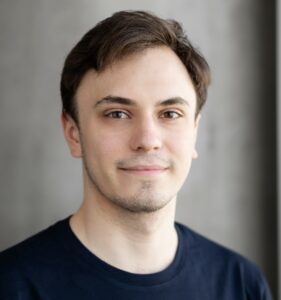About
I am a PhD student at FIIT STU in Bratislava, under the supervision of Prof. Wanda Benešová. In research, I am interested in deep learning focused on generative models and computer vision. In my free time, I like to work on some Arduino projects and hang on the climbing wall (bouldering).
Research
Generative models, synthesis of textures, and medical images.

Examples of generated textures (results of my master thesis)
Publications
- Kollár, M., Hudec, L., Benesova, W. (2024). Semantically Controlled Texture Synthesis by Diffusion Model. In: Arai, K. (eds) Proceedings of the Future Technologies Conference (FTC) 2024, Volume 1. FTC 2024. Lecture Notes in Networks and Systems, vol 1154. Springer, Cham. https://doi.org/10.1007/978-3-031-73110-5_26
Abstract: Texture synthesis is a versatile task applicable across various domains, from entertainment to medical imaging. Traditionally, texture synthesis involves generating one type of texture per image. However, real-world objects and scenes often comprise multiple materials. Nowadays, image synthesis focuses on solutions based on generative neural networks. One of the possible controlling mechanisms for such methods uses an input semantic mask that specifies the layout of individual objects. This approach can also be beneficial for synthesizing combined textures without needing to concatenate regions of different textures by additional approaches. In this study, we propose a method for semantically controlled texture synthesis by diffusion model. Used architecture of the proposed method is based on the adapted solution for semantic image synthesis, which we tuned to improve the quality for the texture synthesis task and faster sampling/training. The proposed method also contains a specialized training approach to reduce the sharp seams at the edges of different regions for multi-texture semantic synthesis on a dataset containing only single-region texture images. Additionally, we experimented with an approach for the synthesis of texture transition/interpolation during the synthesis process. Evaluation of our proposed method shows improved quality of texture synthesis compared to the existing semantically controlled synthesis solutions.
- Kollár, M.; Hudec, L. and Benesova, W. (2023). Multiclass Texture Synthesis Using Generative Adversarial Networks. In Proceedings of the 18th International Joint Conference on Computer Vision, Imaging and Computer Graphics Theory and Applications – GRAPP, ISBN 978-989-758-634-7; ISSN 2184-4321, SciTePress, pages 87-97. DOI: 10.5220/0011657500003417
Abstract: Generative adversarial networks as a tool for generating content are currently one of the most popular methods for content synthesis. Despite its popularity, multiple solutions suffer from the drawback of a shortage of generality. It means that trained models can usually synthesize only one specific kind of output. The usual synthesis approach for generating N different texture species requires training N models with changing training data. However, few solutions explore the synthesis of multiple types of textures. In our work, we present an alternative approach for multiclass texture synthesis. We focus on the synthesis of realistic natural non-stationary textures. Our solution divides textures into classes based on the objects they represent and allows users to control the class of synthesized textures and their appearance. Thanks to the controllable selections from latent space, we also explore possibilities of creating transitions between classes of trained textures for potential better usage in applications where texture synthesis is required.
Theses
- Synthesis of annotated textures using neural networks
Kollár, Maroš. Dissertation thesis: FIIT STU, ongoing - Multiclass texture synthesis using generative adversarial networks
Kollár, Maroš. Diploma thesis. Bratislava: FIIT STU, 2022. - Personalized recommendation on the Web
Kollár, Maroš. Bachelor thesis. Bratislava: FIIT STU, 2020.
Teaching
- Digital Processing of Sound, Image, and Biosignals – Teaching Assistant
- Intelligent Data Analysis – Teaching Assistant
- Neural Networks – Teaching Assistant